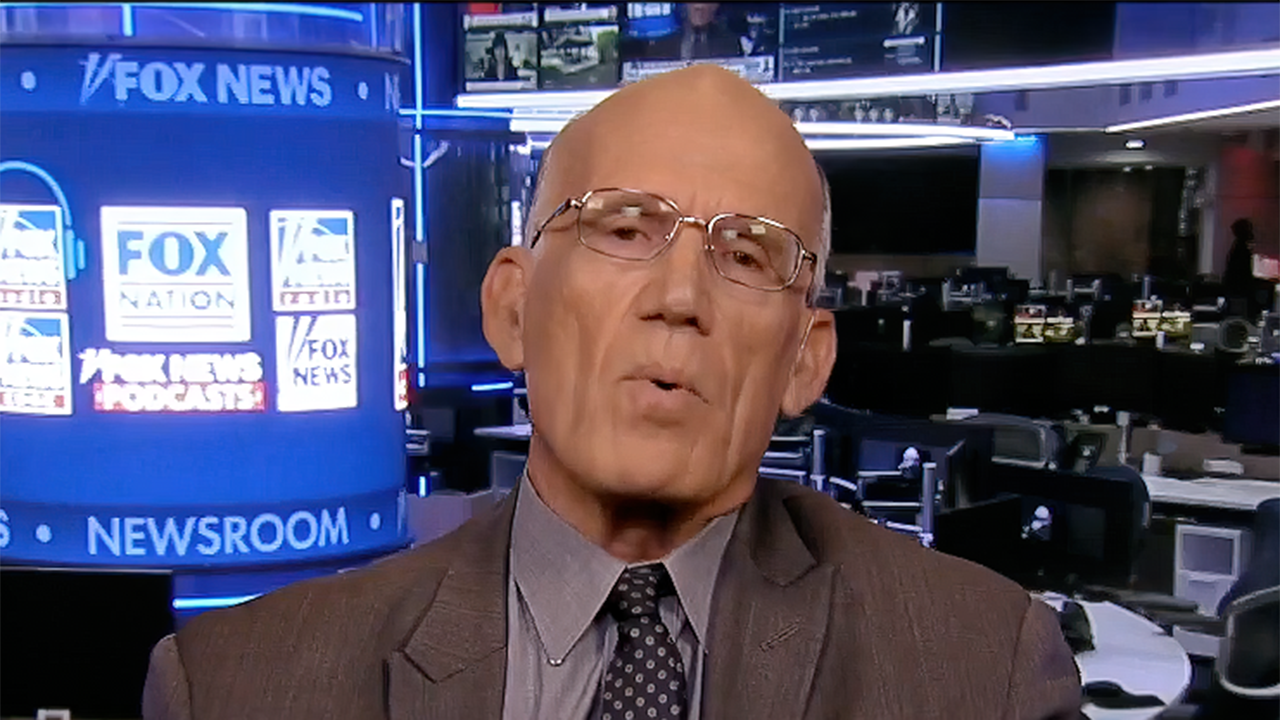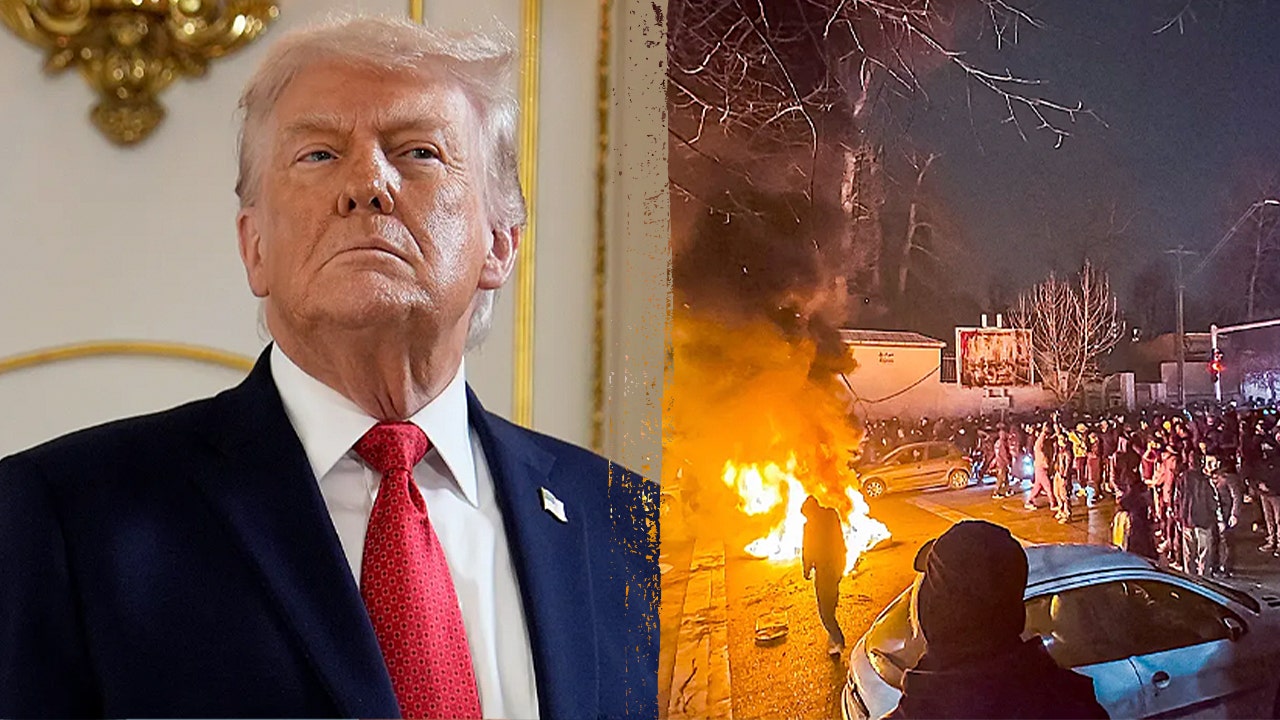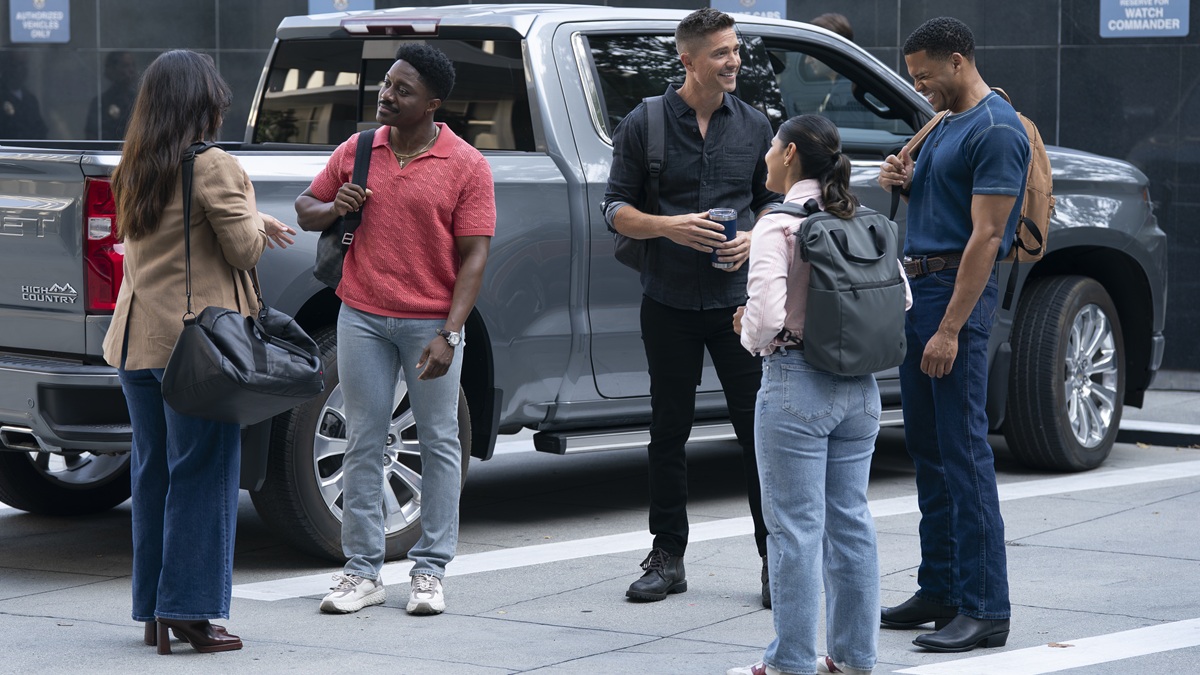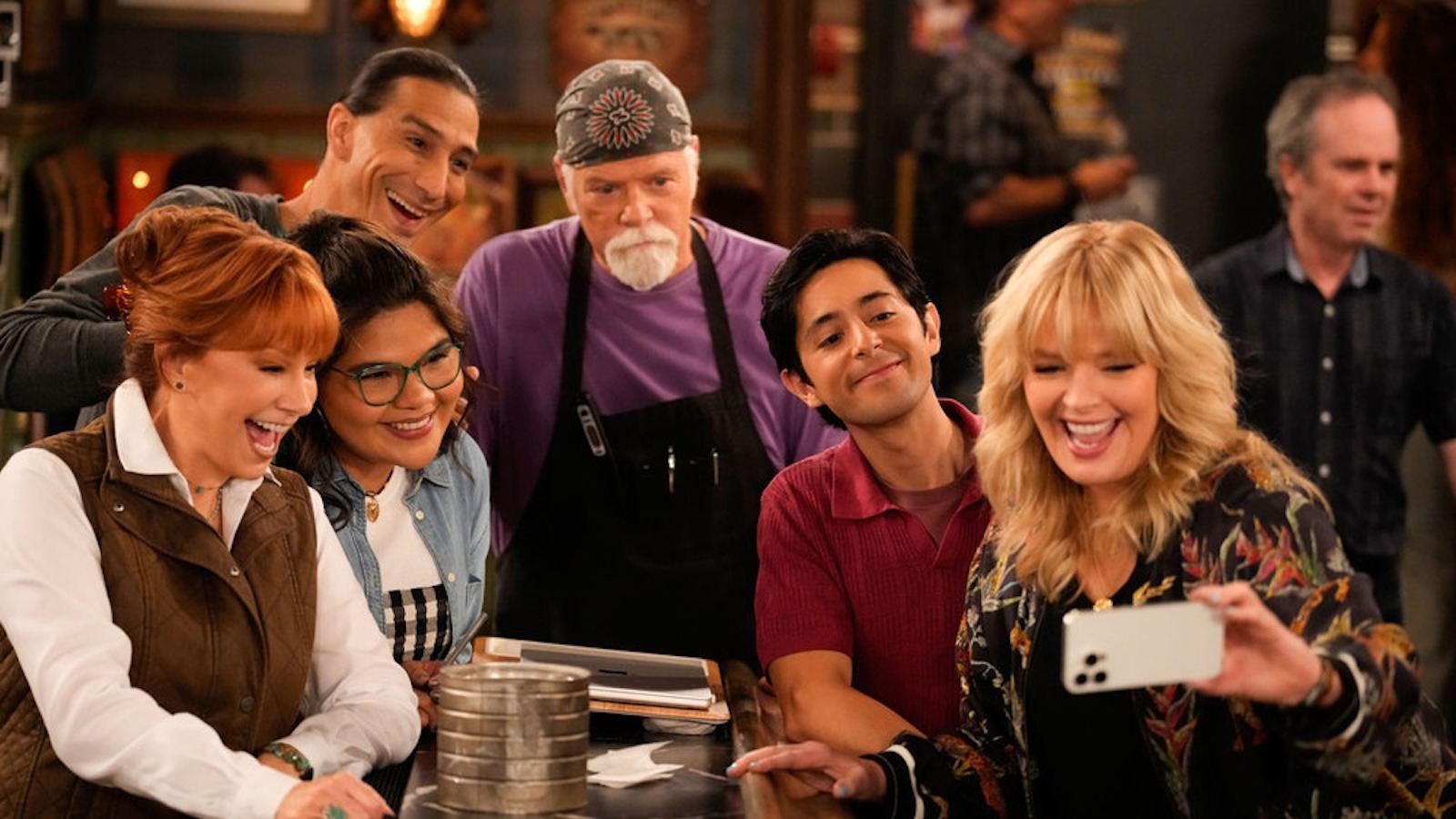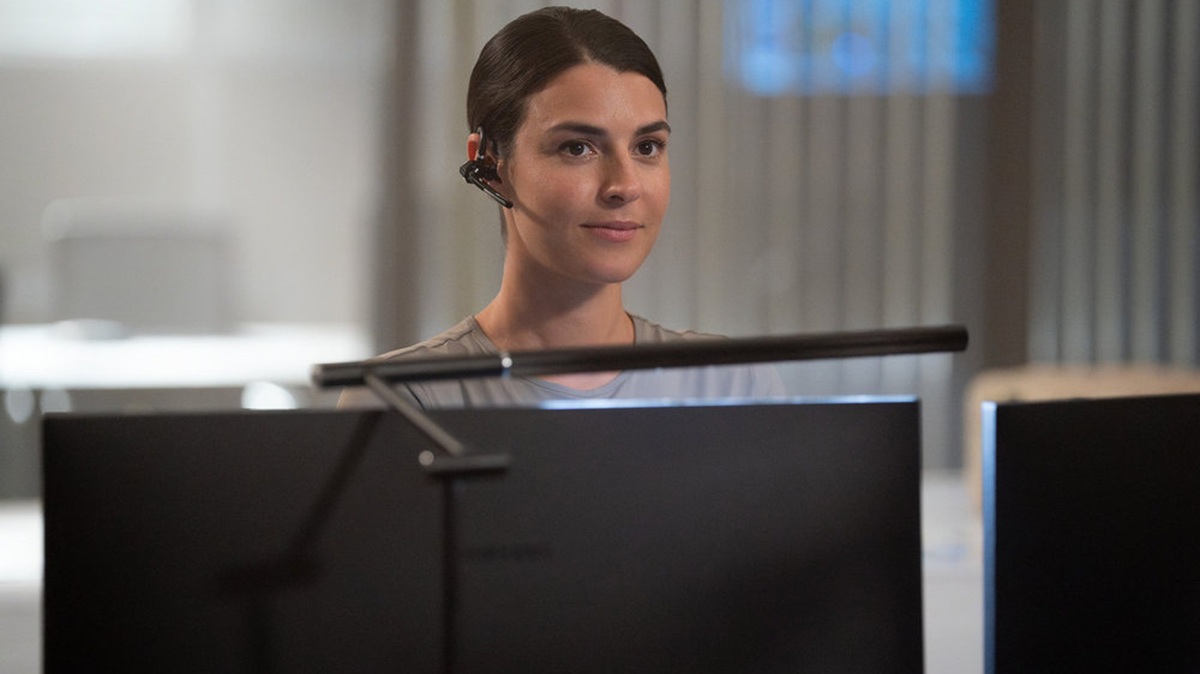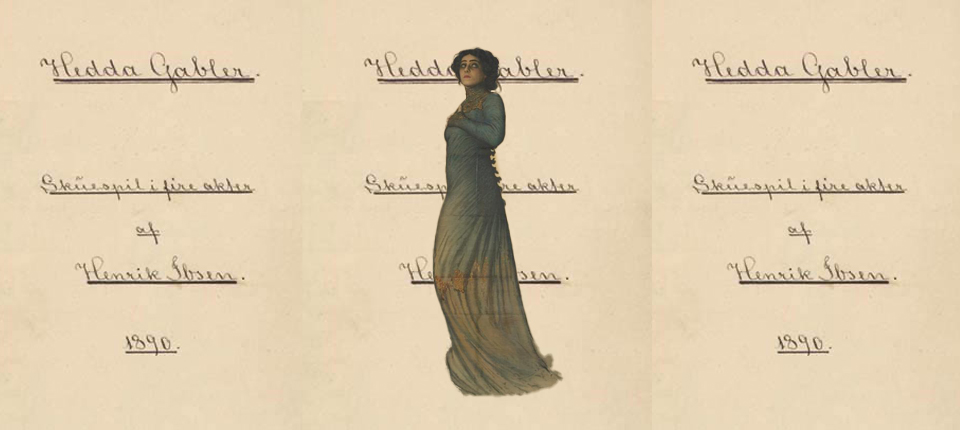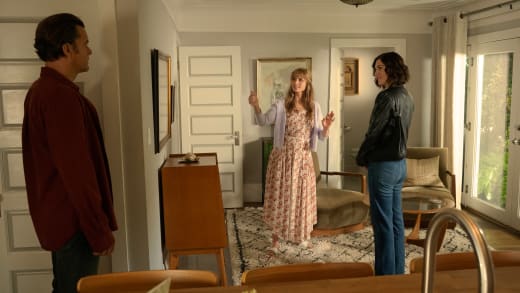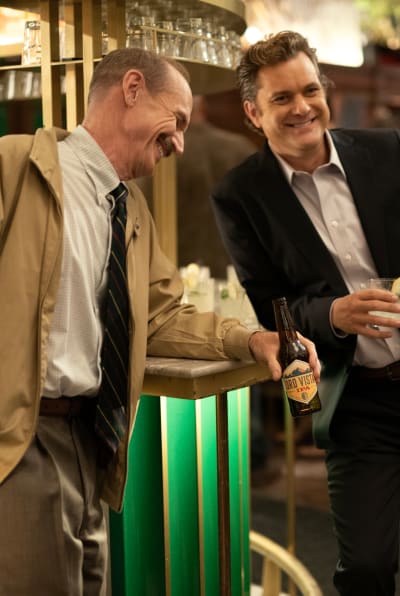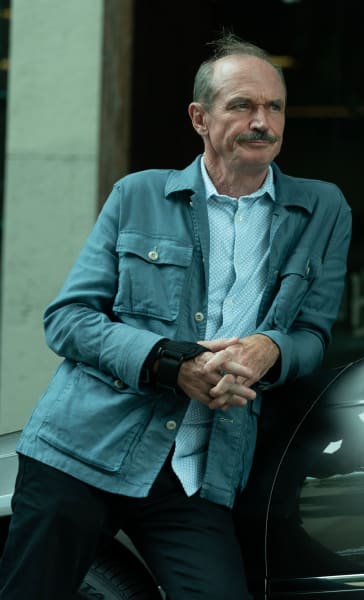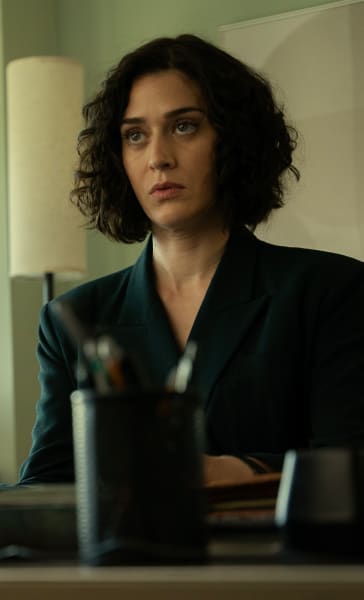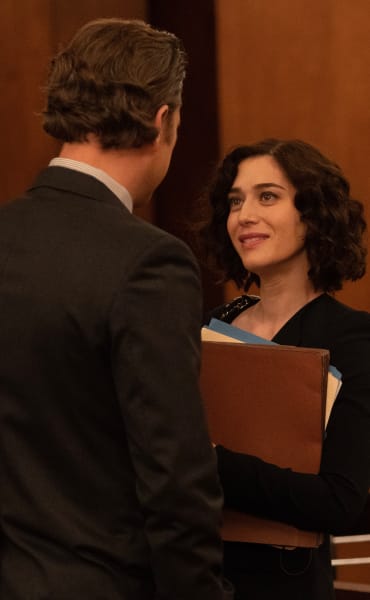The slow burn continues as we get more background on the affair and an unconfirmed but disturbing escalation.
Much like the previous installments, Fatal Attraction Season 1 Episode 4 volleyed between the past and the present, this time in equal measure as we saw Dan trying to get a job and find some stability presently. At the same time, Beth’s life started to unravel in the past.
We had very little of Alex in this installment, but her presence was heavily felt.
As far as the plot goes, there wasn’t much momentum, especially considering that the hour followed Alex throwing the gauntlet down when she threw acid on Dan’s car.
We spent a great deal of time in the past with Beth, most of it showing her perspective through some of the moments where we were initially following Dan and Alex.
Unfortunately, in most of the quiet moments with Beth, we merely retread territory. Beth exhibited growing suspicions that Dan was presumably having an affair, but she never voiced her thoughts or did anything about them.
We see Beth as this seemingly happy, fulfilled woman with a picture-perfect life, a job that she adores, a happy family, and a new home, but we all know that “picture-perfect” often means anything but that.
We see the house opening from her perspective, with Alex roaming around as she idly and obliviously chatted about how happy she was in the house, giving the usual spiel to sell the house.
And the series thought it was important to see this as one of those significant points leading up to Beth knowing deep in her bones that Dan was having an affair, and with this woman, no doubt.
However, without addressing Beth’s resignation of this out loud at any point during the hour, it felt like wasted time.
She found an earring in Quincy’s poop, something telling in the laundry because of the single sock she found, and Dan’s behavior with his cell phone — they were all these little inklings in addition to his behavior when he came face to face with Alex that clued Beth into something.
Dan: I have to tell you something, Beth.
Beth: Now, does it have to be now?
Dan: Yeah, I think it does.
However, they didn’t do anything with it during this hour, which was surprising. Instead, we end on the cliffhanger, if you want to call it that, of Daniel choosing the absolute worst freaking time to tell his wife that he had an affair.
And her resolute, firm statement about the time not being the best implied that she knew what he was going to say before he did it and, understandably, didn’t want to get into it right then.
After all, her mother just died in a pool mere hours earlier.
The closest we got to something was her conversation with Arthur, who the series is doing a decent job of showing how the two ended up together 15 years later.
Aside from the fact that Arthur’s entire personality in the past is dutifully seeing his wife through untreatable cancer, he’s a bit of a Yoda, almost too kind and pure for any of this.
Arthur: What’s the matter?
Beth: Nothing. Nothing real.
Arthur: Well, if it’s real to you, it’s real. Put it into words. Change its nature. Take its power. Thought into action.
Beth: What’s the action?
Arthur: Saying it out loud. No?
He’s Beth’s best friend and so genuinely earnest and supportive that it makes sense how he’d end up in Beth’s life through the thick of everything. He’s almost too perfect.
He invited her to discuss what was troubling her beyond a tricky client, urging her to validate her feelings about her troubles rather than dismissing them.
And Beth seemed on the cusp of opening up but pivoted back to what was safe instead while he took the opportunity to voice his troubles.
It was a scene that set up the groundwork for what we know came to be in the future, and it takes some of the stings if you want to call it that, out of the happy family unit Beth and Ellen found with this man.
Because Beth was too good for Dan, and Arthur was perfect.
We get these little moments and some insight into Beth as a character we wouldn’t otherwise have, and Peet was excellent in her scenes. But they were mostly just there so we’d have something to grasp when Beth’s entire world came crumbling down around her.
Her mother’s death was so tragic. It was just a cluster of scenarios leading up to something absolutely awful, leaving Beth to resent her mother posthumously.
But it also sucked that Dan probably wouldn’t have told Beth the truth if not for his fear and paranoia that Alex was escalating in her behavior.
Maybe if he had been honest before things went to hell, Beth could’ve been prepared, and he wouldn’t have had to break the news mere hours after her mother died only to express his concerns that the woman he slept with was possibly behind the accidental death.
Dan is so self-absorbed and selfish in this regard.
In an hour that provided more of Beth’s perspective, we also got to see more of how Dan embodies the “Nice Guy” trope, so charismatic and seemingly good while also not being precisely and explicitly that at all.
The situation with that case and Jorge was an example, and how it connected to the present is more interesting. His choice to settle a dispute about crimes against older women had him putting it in the lap of an overworked Major Crimes and now the more specialized unit that could’ve dealt with things better.
We all can’t be political animals like you, Danny, I mean, but it’s okay, though. Because somebody’s gotta be the audience, right?
Earl
And he offered to try the case himself. Still, Earl got in his butt, prompting him to kick the trial over to Jorge, giving this lawyer an opportunity in a move that Daniel benefited from in the current timeline when Jorge returns a favor by giving Dan a job.
In many ways, the best thing about Dan is Mike. Their relationship is one of the more intriguing aspects of the series. In addition to being a constant scene-stealer, Mike has been a great friend in the past and present.
He didn’t condone Dan’s actions and was visibly frustrated with him for carrying on with Alex. His advice was sound regarding giving her attention, and his intentions were good-hearted, approaching Alex to warn her off.
And it seems his faith in Dan cost him his fair share in the present, but he even knows how to navigate that well.
He has no issue with Earl following the evidence and has no disillusions about Frank or anyone else.
And he’s been kicking butt in trying to clear Dan’s name. The lead on Paul, the doctor, was a great one, and it set so many things up.
Their interrogation of Paul was one of the better scenes of the hour. His way of describing his connection to Alex and the things she did that put him off was so good. When you encounter someone like Alex and are on the receiving end of her mechanizations, it’s genuinely hard to put into words.
It’s almost primal, the body and all the senses telling you that something is “off,” even if you can’t describe why, and he hit the nail on the head about how Alex would take on all the interests that someone has.
If you tell someone to stop calling you and they keep calling, and the twentieth time you pick up and say, Will you stop fucking calling me? What you just taught them is 20 times is all it takes.
Mike
His description of her swallowing him up was an effective one. That specific story about how she laughed just like him, not ironically or even intentionally, but just folded herself into him, made for a solid moment that resonated with Dan.
But one of the things that Fatal Attraction keeps attempting to do is have something to say, some commentary to make, while also giving into the very thing it’s trying to push against.
We’re supposed to have all this extra context to avoid just writing Alex off as “crazy,” but they still lean into it hard anyway.
Daniel visiting Conchita for the first time since he went to prison was a prime example. They attempt to go back and forth between understanding the natural inclination of calling out Daniel as the privileged straight white dude but then providing all these caveats to make him more sympathetic despite that.
Conchita openly admitted that she withheld valuable information that could’ve affected his case because she didn’t like how he defended himself — his defense either made him a politically incorrect hypocrite at his own convenience or guilty.
As a victim’s advocate, the truth and justice should prevail. Conchita put her hand on the scale because of her perception of who the victim was.
They can’t go out of their way to call out how women like Alex can be victims of a system run by and often beneficial to men like Dan while also trying to make him the wronged victim of this same system.
It’s like the series is trying to serve two masters, neither picking a side, or so it thinks, nor succeeding at having anything to say about either side enough to justify why it’s straddling the fence.
What’s subtly fascinating about the Alex/Daniel dynamic regarding this case is where Conchita fits in as a woman of color.
While she’s fully aware of how society benefits white men and may or may not have allowed that to influence her perception and read on a situation, she would just as likely be cognizant of that same socio-cultural hierarchy benefitting white women, too.
By Conchita’s own words, a bailiff, who happens to be a man of color, came to her with unofficial claims about Alex’s harassment, and nothing came of it, nor was there any real advocation for him as a “real” victim.
It was some proof that Alex had an established history of harassing people and could’ve been a crucial part of Dan’s defense when he was on trial, but Conchita sat on it because she didn’t want to speak ill of the dead woman or allow Dan to “blame the victim.”
Conchita: When they don’t have the law, they argue the facts. When they don’t have the facts, they argue the law. When they don’t have either, they blame the victim. The guilty always blame the victim.
Dan: Is that what you still think?
Conchita: I don’t think about you, Dan. Or well, I do, a little when I remember how well I used to know people, including myself.
The entire conversation and scene between them have Conchita supposedly sitting on some moral high ground to admonish Dan and acknowledge power structures and remind us that he has culpability in the matter and Alex shouldn’t be painted as just some one-note villain.
But it further paints Dan as an actual victim while simultaneously browbeating him for his privilege and catering to the victimized white male narrative.
Do you see what I mean about them trying to have it all the way?
What moral high ground can Conchita stand on by withholding valuable intel about Alex’s previous case of workplace harassment? How does she get to walk away from their reunion feeling like the wronged party who was justified in changing her mind about his guilt because of him telling his truth?
He sat in jail for 15 years, presumably for something he didn’t do, since the series is hellbent on giving Dan absolution when a colleague and friend sat on something that could’ve helped him.
Conchita’s implication that someone had to pay for Alex’s death, regardless of whether it was the right person, isn’t what justice or victim advocacy is about.
If anything, it closed the door on potential suspects by being too fearful of using her actual history. And that doesn’t help victims either.
And yet, this is also in the same installment where Dan, the new baby, got handed a job after minimal struggles as a paralegal because of someone he knows, highlighting that privilege again.
There’s part of me that would love to have you grinding away in a basement for 28 bucks an hour, but the rest of me? I wouldn’t validate your parking if you had a fucking car.
Frank
Surprisingly, there was very little in the present pertaining to Ellen that went anywhere. It’s so much potential storyline to explore with Ellen as she navigates her relationship with her father after all these years.
But sadly, at this hour, she again fell into the role of narrator and allegory peddler with the same pretentious Yung analysis.
Over to you, Fatal Attraction Fanatics. Do you think Alex was behind the death of Beth’s mother? Where do you stand on the depiction of Dan? Sound off!
Jasmine Blu is a senior staff writer for TV Fanatic. She is an insomniac who spends late nights and early mornings binge-watching way too many shows and binge-drinking way too much tea. Her eclectic taste makes her an unpredictable viewer with an appreciation for complex characters, diverse representation, dynamic duos, compelling stories, and guilty pleasures. You’ll definitely find her obsessively live-tweeting, waxing poetic, and chatting up fellow Fanatics and readers. Follow her on Twitter.



